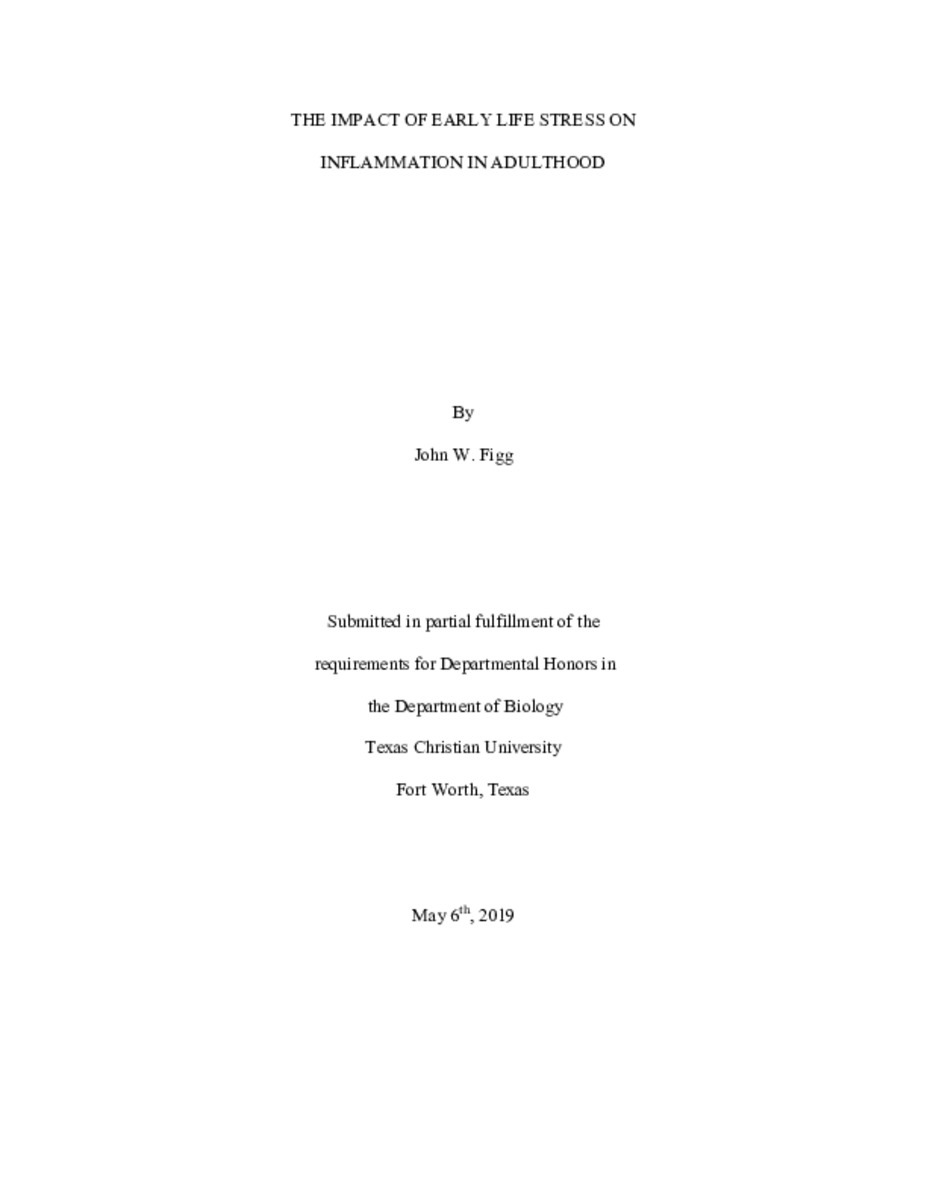The Impact Of Early Life Stress On Inflammation In AdulthoodShow full item record
| Title | The Impact Of Early Life Stress On Inflammation In Adulthood |
|---|---|
| Author | Figg, Jack |
| Date | 2019 |
| Abstract | Stress has been linked to altering acute and long-term inflammatory responses. Stress has been shown to activate inflammatory responses, specifically microglial activation in the brain. While acute inflammation is one of the first responses to fighting disease and infection, prolonged inflammation has been associated with neurogenerative disease such as Alzheimer's disease. Stress at critical periods of development, known as early life stress (ELS) has been linked to chronic dysregulation of the hypothalamic-pituitary adrenal (HPA) axis, depression and alterations to microglial cells. The goal of this study is to investigate the effect of stress in mice during early development through maternal stress during pregnancy and the impact on neuroinflammation in adult offspring. In utero, offspring are vulnerable to the harmful effects of pro-inflammatory cytokines due to stress experienced by adult mice, following an ELS timeline. Three conditions were utilized: (1) mice undergoing stress during the entire pre-natal period and with the early postnatal period, (2) mice undergoing stress during the early postnatal period, and (3) mice undergoing no additional stress at any point. For mice in the combination-stress condition, there was an immunosuppressive effect through downregulation of pro-inflammatory cytokines. These data support existing publications that indicate an immunosuppressive role of prenatal stress, leaving the host less protected against chronic disease. |
| Link | https://repository.tcu.edu/handle/116099117/27053 |
| Department | Biology |
| Advisor | Chumley, Michael |
| Additional Date(s) | 2019-05-19 |
Files in this item
This item appears in the following Collection(s)
- Undergraduate Honors Papers [1362]
© TCU Library 2015 | Contact Special Collections |
HTML Sitemap



